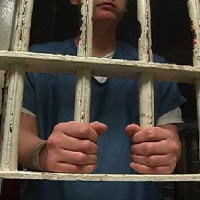New Life for Juveniles with Long Sentences

The U.S. Supreme Court ruled in 2010 that life without parole for juveniles not convicted of murder was unconstitutional cruel and inhumane punishment, but that didn’t stop judges in California from conjuring up sentences that were, in effect, for life.
Last Thursday, the California Supreme Court put a big dent in that practice by unanimously overturning the 110-year sentence of Rodrigo Caballero, who was a 16-year-old gang member when he was arrested for attempted murder. They called it a de facto unconstitutional life sentence.
Caballero, who belonged to a gang, wounded a rival gang member in 2007 and was convicted of attempted murder. He was sentenced to extra years in prison because of his gang affiliation and for use of a firearm during commission of a crime.
On the same day the high court decision came down, the state Assembly passed a bill introduced by Senator Leland Yee that allows lifers who were convicted as juveniles to seek a sentence of 25-year-to-life with a chance for parole. Prisoners wouldn’t be allowed to apply for the reduced sentence until they had served 15 years.
The bill, SB 9, passed the Senate last year but failed repeatedly in the Assembly. It was finally approved with the bare minimum of votes needed and without the support of a single Republican. Senate Bill 9 does not apply to juveniles who committed crimes against a law enforcement officer or a firefighter, or who have a history of violence.
Debate over the measure was heated.
Criminal defense lawyer Daniel Horowitz, whose wife was murdered in 2005 by a 16-year-old now serving life without parole, told the Associated Press that releasing juvenile lifers “would open the gates of hell.”
“We aren't trying to punish these young people,” he said. “We are trying to protect the public from this happening again.”
Proponents of the bill say juveniles should be treated differently than adults because their brains are not fully formed, making them more open to rehabilitation.
The bill went back to the state Senate for adjustments, where it received final approval Monday.
The United States is the only country that allows juveniles to be locked up for life without parole and 38 states, including California, have such laws. Around 2,500 inmates who killed as juveniles are serving life sentences without parole in the country, including 309 in California, according to the California Department of Corrections and Rehabilitation.
About half of the California juveniles convicted of murder didn’t actually kill anyone. Instead, they were involved in the commission of the crime in some other capacity, as either a lookout or participant in a related felony like burglary. It has been estimated that it will cost the state nearly $700 million to keep the juveniles locked up for life.
–Ken Broder
To Learn More:
Many Question Life Sentences for Juveniles (by Paul Ellis, Associated Press)
Lawmakers OK Letting Minors Appeal Life Terms after 15 Years (by Patrick McGreevy, Los Angeles Times)
Bill Offers Juvenile Lifers 2nd Chance (by Marisa Lagos, San Francisco Chronicle)
Senate Bill 9 (California Legislative Information)
Life Term for Juvenile Unconstitutional, State High Court Rules (by Victoria Kim, Los Angeles Times)
- Top Stories
- Controversies
- Where is the Money Going?
- California and the Nation
- Appointments and Resignations
- Unusual News
- Latest News
- California Forbids U.S. Immigration Agents from Pretending to be Police
- California Lawmakers Urged to Strip “Self-Dealing” Tax Board of Its Duties
- Big Oil’s Grip on California
- Santa Cruz Police See Homeland Security Betrayal in Use of Gang Roundup as Cover for Immigration Raid
- Oil Companies Face Deadline to Stop Polluting California Groundwater





